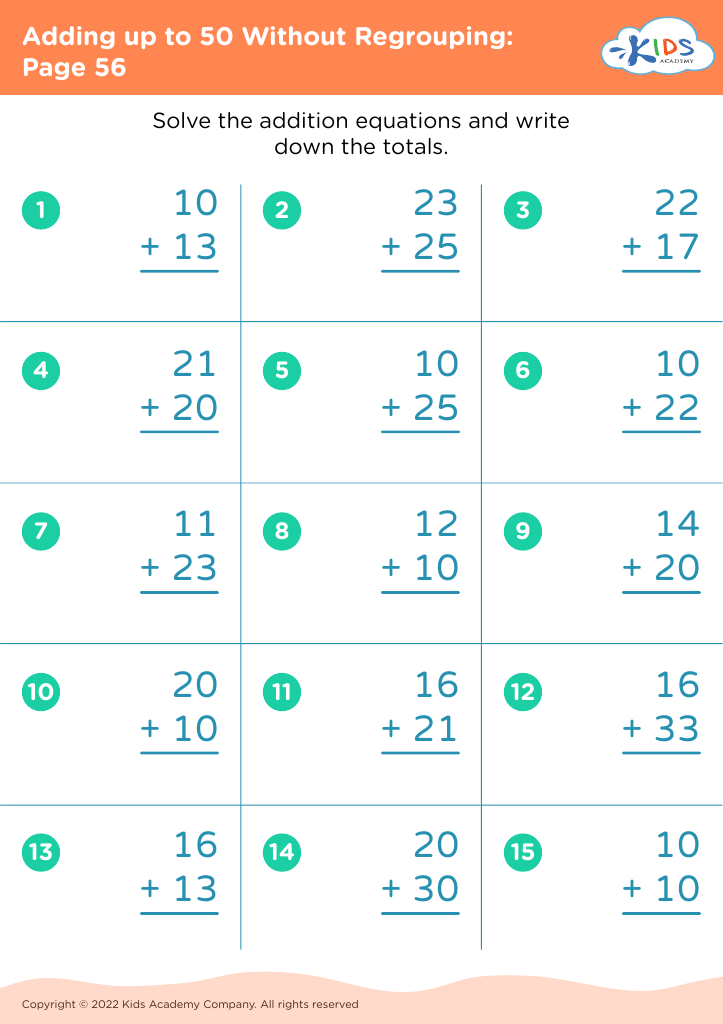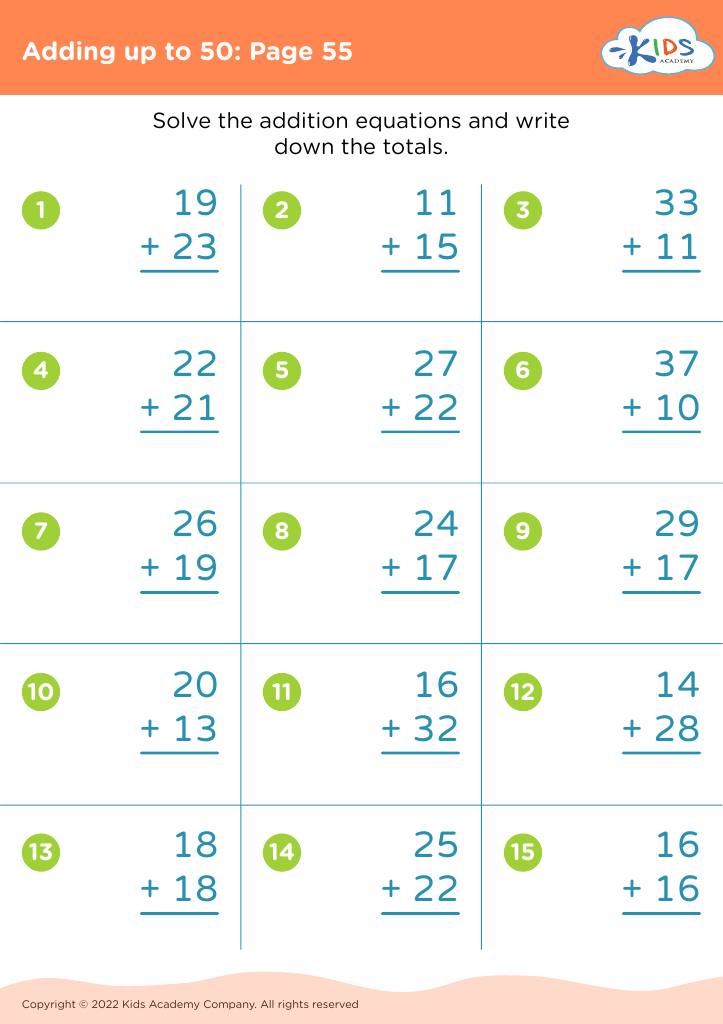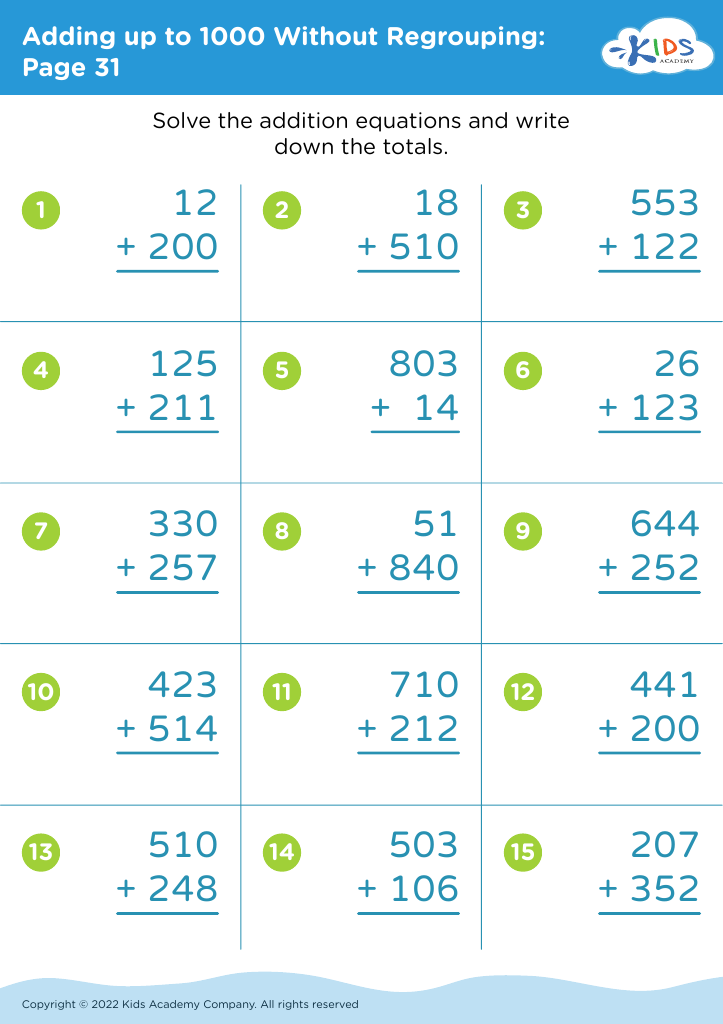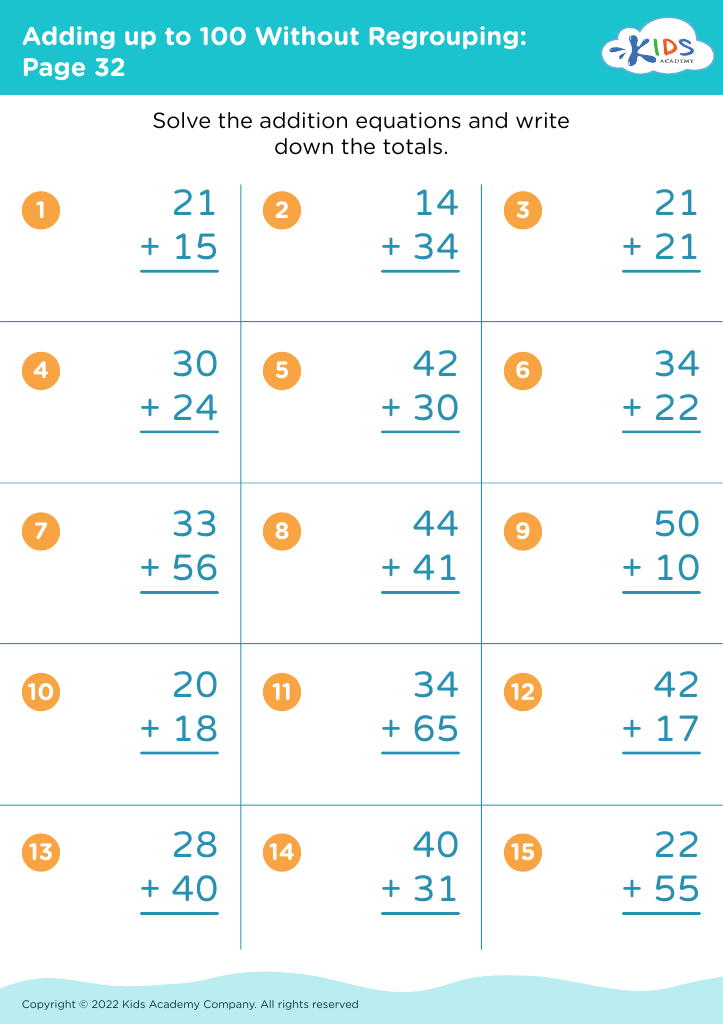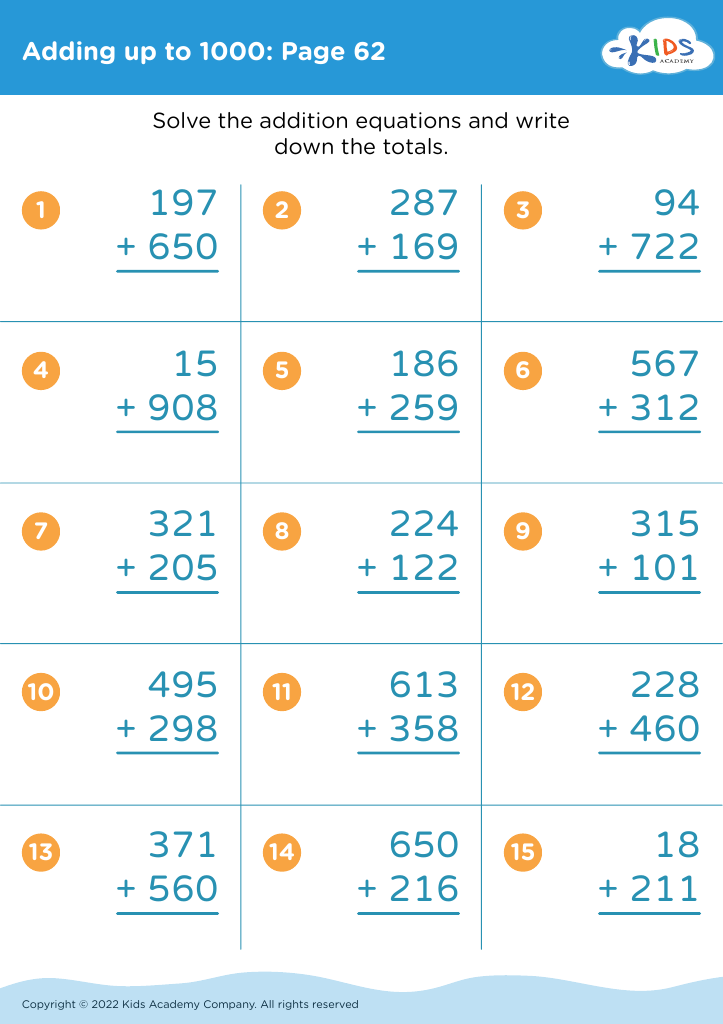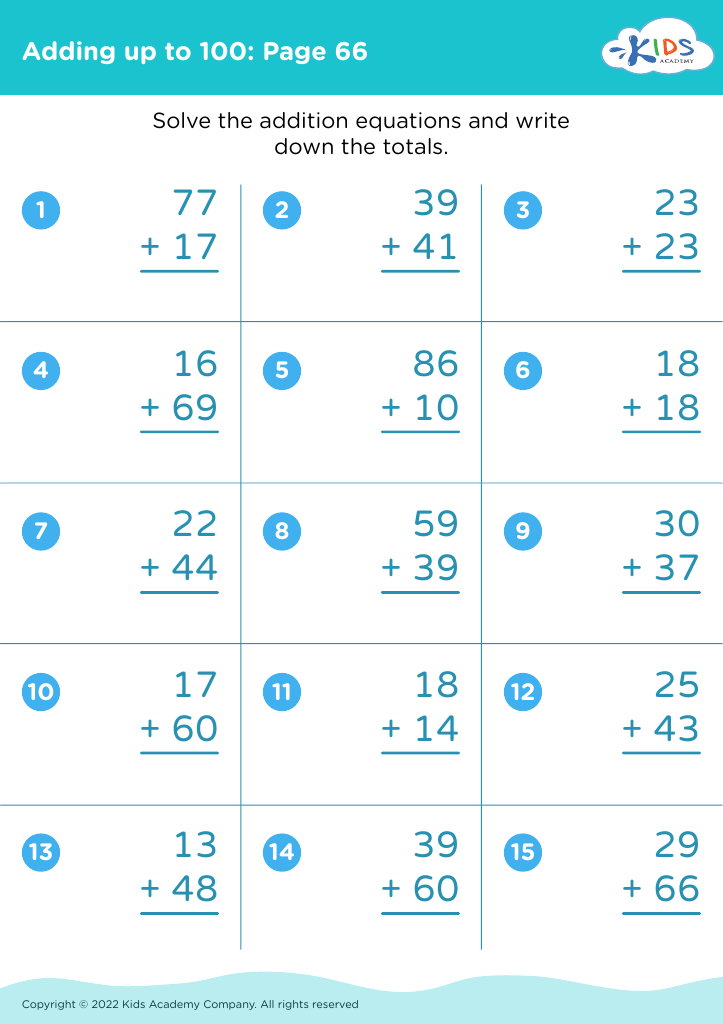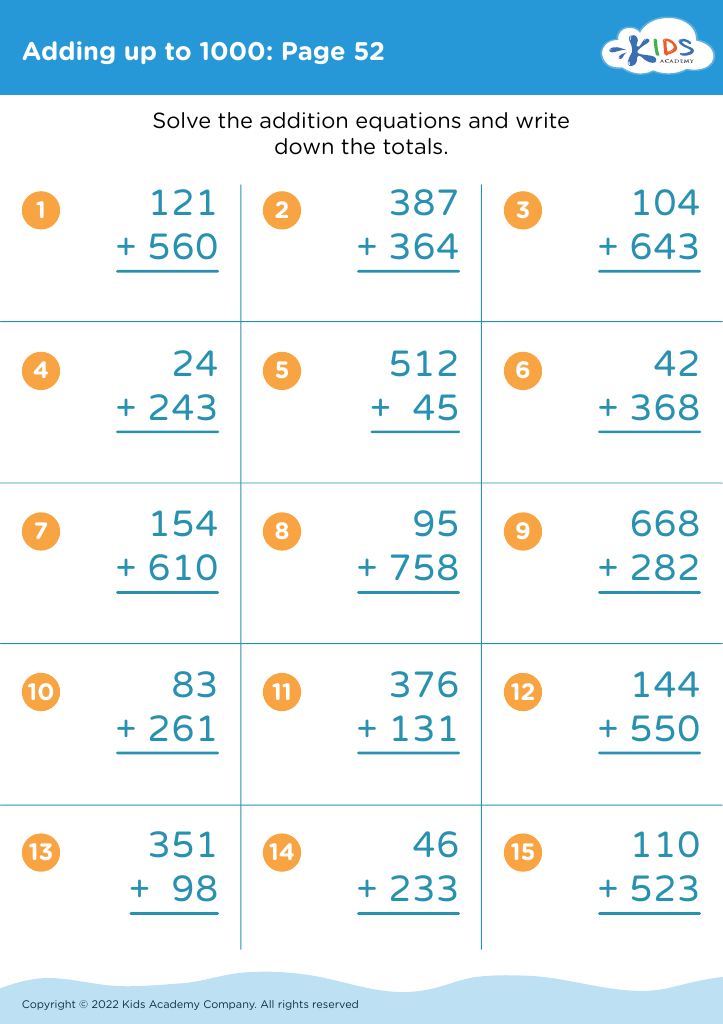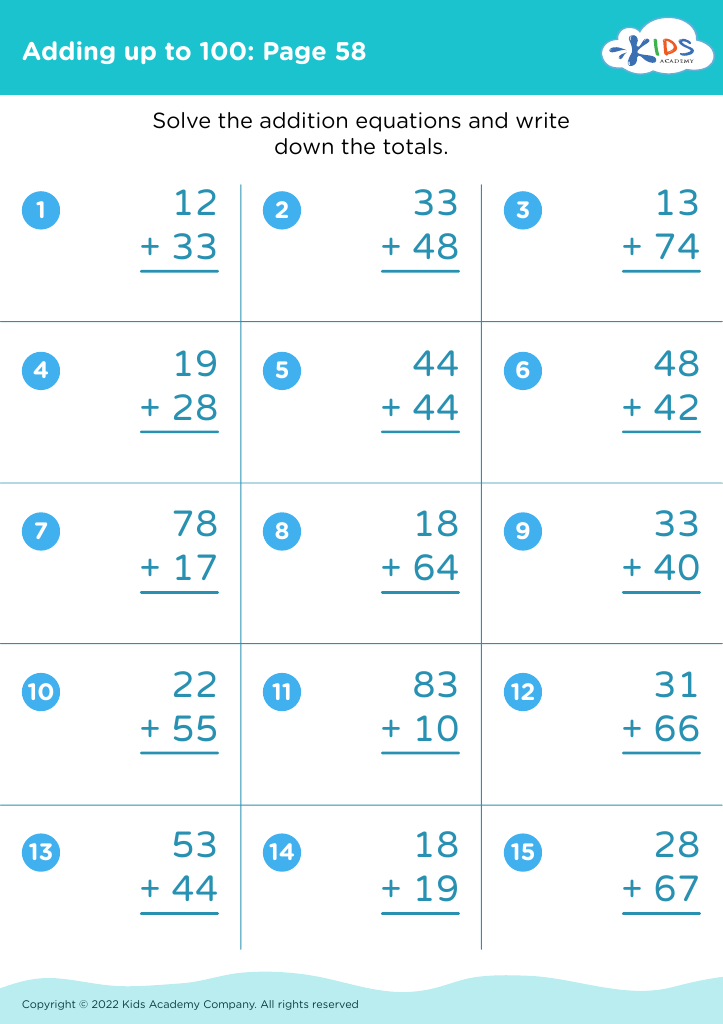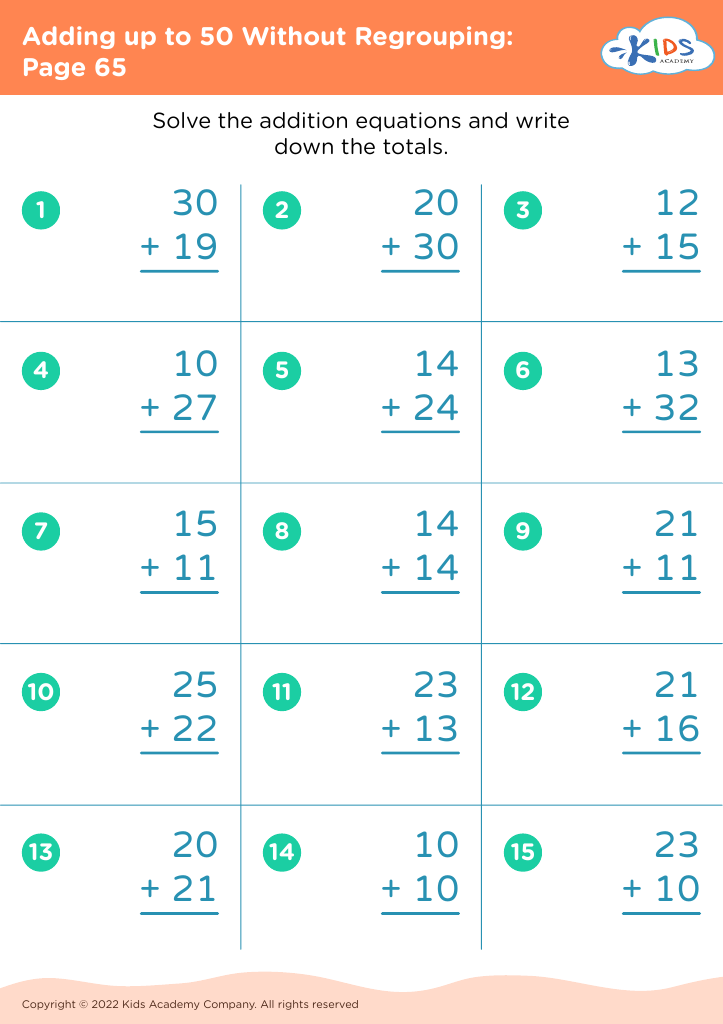Understand fractions Addition & Subtraction Worksheets for Ages 7-8
20 filtered results
-
From - To
Navigate the complexities of fractions with our specially designed "Understand Fractions: Addition & Subtraction Worksheets" for ages 7-8. These engaging worksheets simplify essential concepts, guiding young learners through fraction addition and subtraction using visual aids, real-world examples, and step-by-step instructions. Tailored to enhance comprehension, boost confidence, and build foundational skills, our exercises are perfect for both classroom and home use. Elevate your child's mathematical abilities and watch them excel with our trusted, effective teaching resources at Kids Academy. Discover a fun, interactive way to master fractions today!
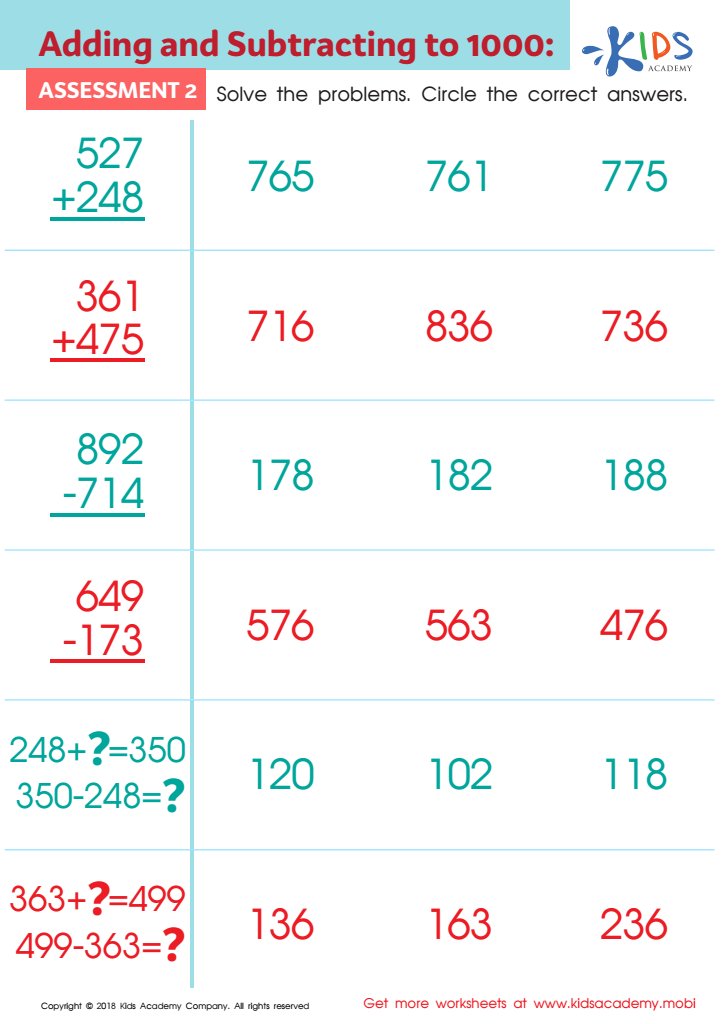

Adding and Subtracting to 1 Worksheet: Assessment 2
Understanding fractions, addition, and subtraction at ages 7-8 is crucial for several reasons. First, these foundational math skills play a vital role in developing a child's overall numeracy and problem-solving abilities. At this age, children transition from whole number arithmetic to more complex concepts like fractions and decimals. Mastery in these areas enhances not only their mathematical understanding but also their ability to practically apply math in everyday situations.
Secondly, early proficiency in these topics builds academic confidence. When children grasp fractions, addition, and subtraction early on, they are more likely to succeed in future, more advanced math courses. This confidence can spread to other academic subjects and foster a positive attitude towards learning in general.
Moreover, understanding fractions and their operations is pivotal for real-life applications. Fractions are used in cooking, telling time, and in understanding ratios and proportions in science. Knowing how to add and subtract fractions ensures they are prepared for daily tasks and decision-making processes in their adult lives.
Therefore, teachers and parents should prioritize teaching these concepts. Providing practice, using visual aids, and incorporating these skills into fun activities can make learning engaging and meaningful, laying a strong academic foundation for future success.
I've kept the explanation tightly focused on the importance for both academic development and practical life skills integration. If you need any further detail or a different perspective, feel free to ask!
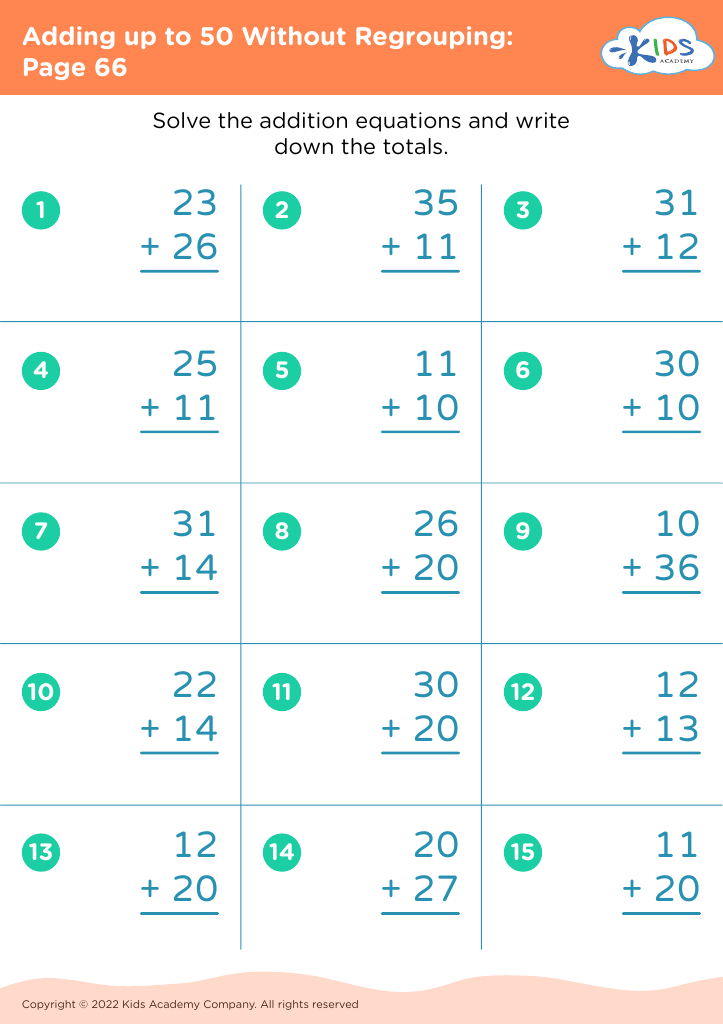

 Assign to My Students
Assign to My Students
